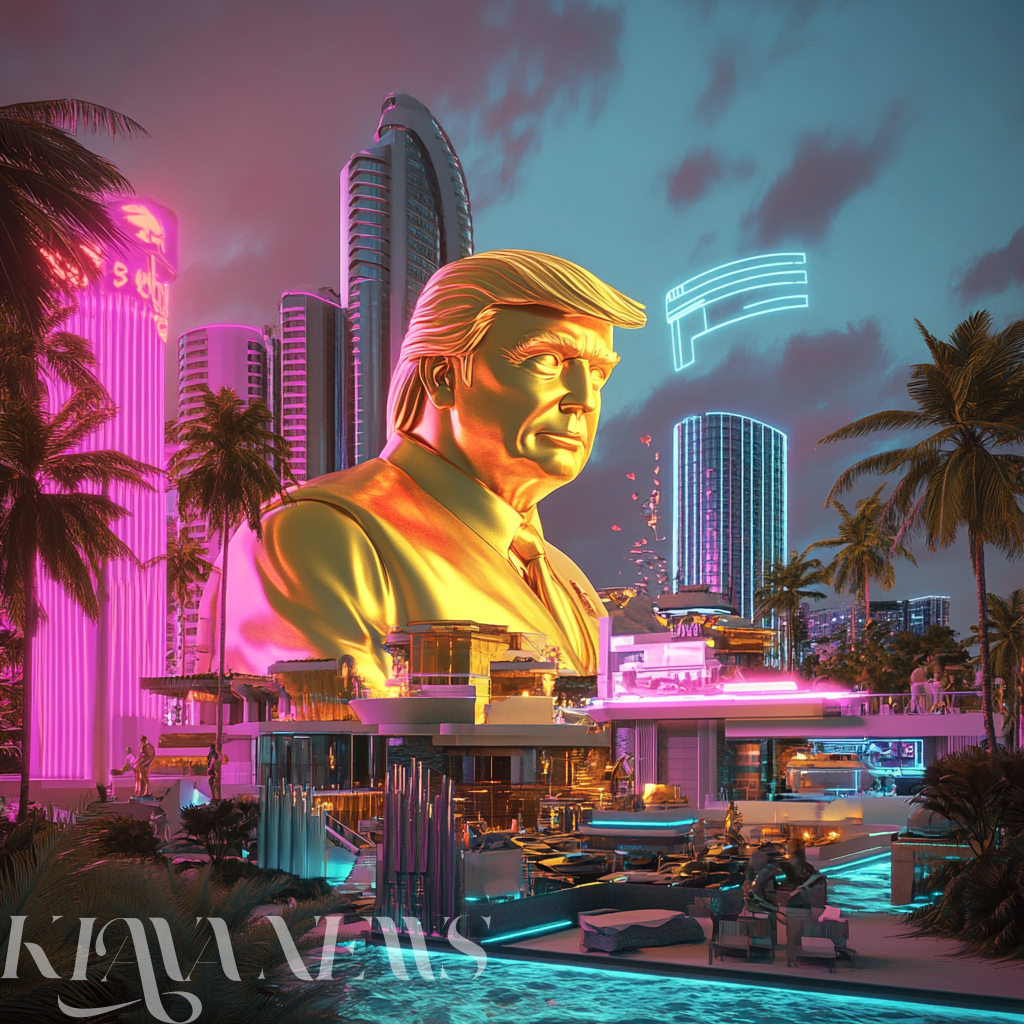Washington, D.C. – A controversial AI-generated video depicting a futuristic Trump-branded Gaza has ignited backlash worldwide. The video, shared by Donald Trump on Truth Social and Instagram, features bizarre scenes of bearded Hamas militants dancing, a golden Trump statue, and Elon Musk eating pita bread.
Its creators, Solo Avital and Ariel Vromen, insist the video was satirical, not political propaganda. However, critics argue it trivializes the humanitarian crisis in Gaza.
How the ‘Trump Gaza’ AI Video Went Viral
Avital and Vromen, co-founders of EyeMix Visuals, created the video as a test project using the AI tool Arcana. They claim it was intended as a joke, not a political statement.
🔹 They never intended for Trump to share it.
🔹 The video was made in just eight hours.
🔹 It features exaggerated depictions of Trump’s “Gaza Riviera” idea.
Although the video was only briefly posted online, it somehow reached Trump’s inner circle. Many suspect that Mel Gibson, who has worked with EyeMix before, may have shared it. However, Gibson denies this.
Inside the ‘Trump Gaza’ Video: What It Shows
The AI-generated video paints an absurdly utopian version of Gaza, featuring:
✔️ A massive golden Trump statue towering over the city
✔️ Hamas fighters dancing in bikinis
✔️ Trump and Netanyahu sipping cocktails on a beach
✔️ Elon Musk casually eating pita
✔️ Dollar bills raining down on Palestinian children
Avital and Vromen insist it was meant as satire, pushing Trump’s vision of Gaza to an extreme. However, once Trump shared it without context, many mistook it for a serious proposal.
Trump’s Post Ignites Political Firestorm
Donald Trump’s decision to share the video without any caption led to:
🔥 Immediate backlash from world leaders
🔥 Criticism from Palestinian officials
🔥 Debates over AI-generated political content
Trump’s original idea of turning Gaza into a “Middle East Riviera” was already controversial. The AI video only added fuel to the fire.
Some view Trump’s post as an endorsement of mass displacement, with critics comparing it to ethnic cleansing. Even Trump’s allies distanced themselves from the video, calling it “tone-deaf.”
Creators Claim Trump Stole Their Content
Avital and Vromen now accuse Trump of using their content without permission.
“Trump has stolen our content. This was satire, not a serious proposal,” said Vromen.
The duo also express frustration that Trump provided no context when sharing the video, making it seem like an endorsement of his Gaza policy.
AI and Politics: A Growing Concern
This controversy highlights the rising influence of AI-generated content in politics.
🔹 Deepfake videos and AI-generated media can blur the lines between reality and fiction.
🔹 Political leaders using AI content without context can spread misinformation.
🔹 AI-generated propaganda is becoming a growing issue in elections and foreign policy.
This incident raises ethical questions about how AI should be regulated in political communication.
🔗 Related News: How AI Is Reshaping Political Messaging
Final Thoughts: The Future of AI in Politics
The Trump Gaza AI video controversy is a wake-up call about the risks of AI-driven media. Whether satirical or not, this case proves that AI-generated content can have serious real-world consequences.
As governments and tech companies debate AI regulations, experts warn that political deepfakes will become more common, making it harder for the public to distinguish real from fake.
📢 What do you think? Should political leaders be allowed to share AI-generated content without disclaimers? Share your thoughts in the comments!
🚀 Stay updated on AI, politics, and digital media by subscribing to our newsletter!

